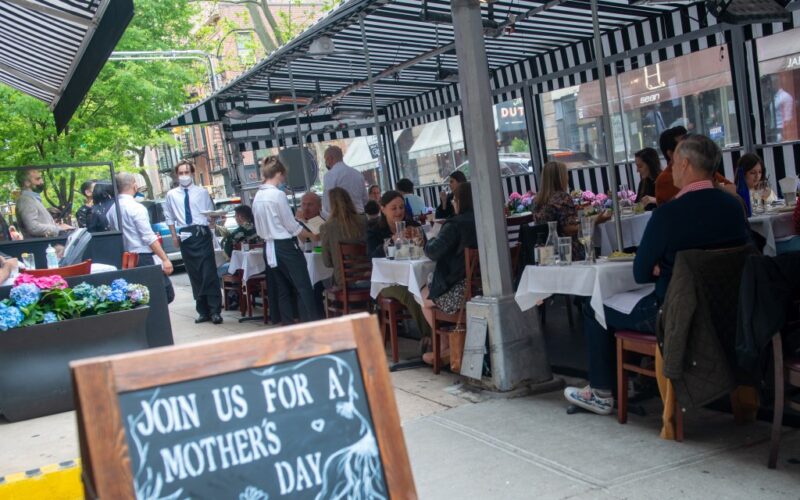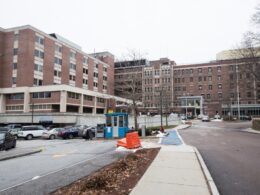As was predicted, the City Council made a grave error in so weakening the city’s outdoor dining program that hardly any restaurants have set up tables in the roadway. The season began on April 1, but you’d barely notice as only about 650 roadway structures have been approved, along with 1,850 sidewalk cafes, mostly concentrated in wealthier areas. During COVID, that figure exceeded 10,000.
Part of the problem is that there being an outdoor dining season at all, running from April to the end of November, one of the Council’s foolish requirements of the new formal program that have ultimately shut a lot of small businesses out.
There’s a truism that outdoor dining was the one most visible silver lining of COVID’s disastrous impact on the city, and that seems plainly so. The retaking of public space for some of our most cherished social functions was a godsend that kept a lot of people sane and was a boon for small businesses even after things started reopening.
With more than 8 million New Yorkers crammed into this city, of course we must control what businesses can and can’t do in the interest of the public welfare. This basic analysis breaks down when the regulations stand in the way of good-faith actors who want to comply but can’t find a viable way to do so.
Are there good reasons to constrain dining sheds in some ways? Certainly; we don’t want them to be safety hazards, we don’t want them to extend into oncoming traffic or block bus and bike lanes, it’s only fair that businesses pay permits or fees for their ability to expand out into what is public space and nobody wants rat sanctuaries dotting the roadways.
Drivers who are gung-ho about their right to park their vehicles on public space should probably realize they’re in the minority of New Yorkers, especially in dense, restaurant-heavy areas like downtown Manhattan, but we certainly don’t want to ax all parking in favor of dining sheds.
There’s a version of the program that takes these considerations into account, that ensures the spaces are safe and not allowed to fall into disrepair and incur reasonable costs, that the Council could have passed. We know there is because a version already existed as the more ad-hoc version that was put into place during the early COVID days, but instead the Council decided, in its infinite wisdom, to roll out a program that most dining establishments that want to participate find too onerous and expensive, largely due to the seasonality requirement.
Many of the restaurants that are seeking permits are doing so somewhat grudgingly, out of the belief that their customers will expect it and that they must compete with the other bars and restaurants that will offer the convenient outdoor seating as the weather gets nicer.
If the Council says it was trying to strike a balance, well, weeks into the new dining season it evidently seems to have failed to do so and it should go back to the drawing board to ensure that more of our small businesses can participate in the program, including by finding a better solution to the issue of the off-season sheds that could entail allowing them to be fully enclosed. Ideally, get it done before the weather gets warm.








